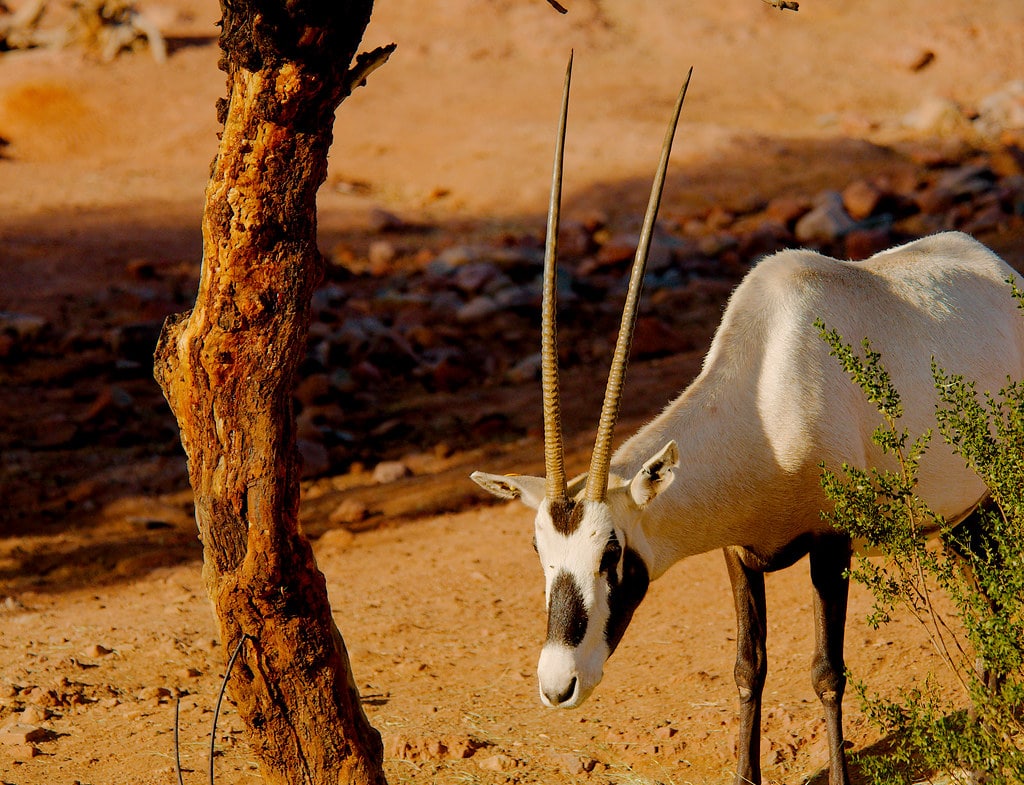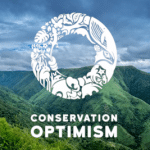Wondering what went right this week in the conservation world? We’ve got you covered with our Conservation Optimism Round-Up! Each week we are collating stories of optimism from around the globe so that you never miss your dose of Monday Motivation.
1. Grey wolf federal protections removed by Trump restored across much of US
” Federal protections for grey wolves were restored across much of the US on Thursday, after their removal in the waning days of the Trump administration exposed the predators to hunting that critics said would undermine their rebound from widespread extermination early last century.”
Federal protections for gray wolves were restored across much of the US after their removal in the waning days of the Trump administration!#conservationoptimismhttps://t.co/yyyzDgqRt4
— SCB (@Society4ConBio) February 11, 2022
2. How one family’s rewilding project returned lions and cheetahs to a corner of South Africa’s Great Karoo
“Much of what is now the Samara Private Game Reserve, in the Eastern Cape, became home to livestock. That was until 1997, when nature was once again allowed to take its course over thousands of acres of land. Now, after 25 years of carefully managed rewilding, both cheetahs and lions have not only returned to this part of South Africa — they’re thriving.”
Thanks to the #rewilding of over 27,000 ha in #SouthAfrica, #Cheetahs and #Lions have returned to the #GreatKaroo after a century-long absence! #nature #wildlife #biodiversity #conservationoptimism #wildlifeconservation #conservation #LetNatureThrive https://t.co/VGcl4m71zg
— Global Conservation Solutions (@_GCS_) February 10, 2022
3. A new milestone for the world’s rarest duck
” A group of Madagascar pochards, the world’s rarest duck once feared lost, has been released into the wild as part of a pioneering conservation project to save this critically endangered bird from extinction.”
A milestone for the world's rarest duck!
— Synchronicity Earth (@SynchEarth) February 9, 2022
35 captive-bred ducks have been released onto Lake Sofia (Madagascar), bringing the total reintroduced adults on the lake to 47.
The only other known habitat (Bemanevika) holds ~70 birds.https://t.co/eT4ZzMmveN #ConservationOptimism pic.twitter.com/IvwOqOFtb0
4. Gabon Provides Blueprint for Protecting Oceans, Protecting 26 Percent of its EEZ in a Network of 20 Marine Protected Areas
” Gabon’s network of Marine Protected Areas (MPAs) provides a blueprint that could be used in many other countries, experts say. Since announcing a new MPA network in 2014, Gabon has created 20 protected areas – increasing protection of Gabonese waters from less than 1% to 26%. “
Some #conservationoptimism from Gabon: https://t.co/f9e5F1CDqA
— Dr. Stephanie Schuttler💎 (@FancyScientist) February 7, 2022
5. Tukupu: The women of the Kariña community, guardians of Venezuela’s forests
” Tukupu is Venezuela’s first Indigenous forest business, sustainably managing and reforesting 7,000 hectares (17,300 acres) of the Imataca Forest Reserve in the south-east of the country. The business is led mainly by women who have used their ancestral knowledge to restore over 312 hectares (770 acres) of forest, reforest another 113 (280 acres) and dedicate 189 (468 acres) to agroforestry. “
Indigenous women protect Venezuelan forests. My news to me good news for Feb 3 #EarthOptimism https://t.co/5qsfvTKhsh
— Dr. Nancy Knowlton (@SeaCitizens) February 4, 2022
6. How animals on the brink of extinction are being saved in the Gulf
” More than 1,200 Arabian oryx are found in the wild, in countries including the UAE and Saudi Arabia, and thousands more live in what is described as semi-captivity. The IUCN now classifies the animal as “vulnerable”, which is three categories up from its previous designation: “extinct in the wild”. This is an astonishing success story over such a short period of time. “
There are now 1200 Arabian oryx roaming free. Not long ago it was listed as extinct in the wild, now it's status is vulnerable, which is a huge improvement. My news to me good news for Jan 23. #EarthOptimismhttps://t.co/IYAyz4Amnv
— Dr. Nancy Knowlton (@SeaCitizens) January 24, 2022
7. Respiratory Health of Wild Mountain Gorillas in Rwanda Improved Since Start of Pandemic
” Respiratory illness outbreaks among wild mountain gorillas in Volcanoes National Park have declined since the start of COVID-19, according to the Gorilla Doctors Organisation and the Rwanda Development Board. In the five years prior to March 2020, the Volcanoes National Park population averaged 5.4 respiratory illness outbreaks in gorilla family groups annually. In contrast, from March 2020 through December 2021, the population averaged 1.6 respiratory illness outbreaks in the family groups each year. “
#ConservationOptimism...respiratory health of Rwanda's mountain gorilla population has improved - corresponding with decreased levels of human contacts & improved disease control measures. Gorillas remain highly susceptible to human response illnesses. #OneHealth #OneWelfare https://t.co/ppzgToDOu7
— Mel dawson (@Meldawson6) February 11, 2022
Have a story to share for our weekly round-up? Use #ConservationOptimism on Twitter, Facebook, LinkedIn and Instagram!


